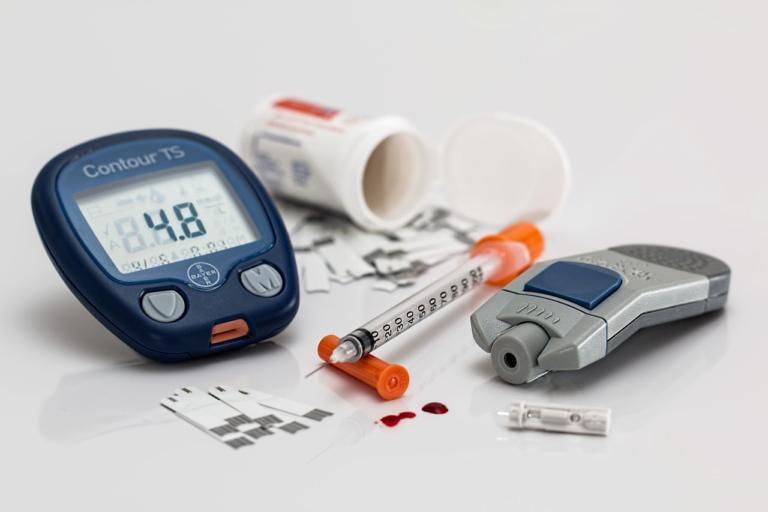Debunking Common Myths About Treating and Curing Diabetes
#ez-toc-container {
background: #f9f9f9;
border: 1px solid #aaa;
border-radius: 4px;
-webkit-box-shadow: 0 1px 1px rgba(0, 0, 0, .05);
box-shadow: 0 1px 1px rgba(0, 0, 0, .05);
display: table;
margin-bottom: 1em;
padding: 10px 20px 10px 10px;
position: relative;
width: auto;
}
.ez-toc-container-direction {
direction: ltr;
}
.ez-toc-list-level-1 a{
font-weight:bold;
}
Table of Contents
1. Introduction to Diabetes and Common Myths
Introduction to Diabetes and Common Myths
Diabetes is one of the most prevalent chronic conditions affecting millions of people worldwide. Understanding the disorder, its types, and its impact on individuals and society is essential for effective management and treatment. Unfortunately, diabetes is also surrounded by numerous myths that can hinder proper care. In this article, we will explore diabetes in detail and delve into some common myths surrounding diabetes treatment to highlight the importance of debunking these misconceptions for better diabetes management.
Overview of Diabetes
Diabetes is a metabolic disorder characterized by high blood sugar levels over a prolonged period. It occurs either when the pancreas does not produce enough insulin or when the body cannot effectively use the insulin it produces. Insulin is a hormone that regulates blood glucose levels. High blood sugar levels can lead to severe health complications if not managed properly.
- Types of Diabetes:
- Type 1 Diabetes: This form of diabetes typically occurs at a young age and is considered an autoimmune condition where the body’s immune system attacks and destroys insulin-producing beta cells in the pancreas. It requires lifelong insulin therapy.
- Type 2 Diabetes: The most common type, it usually develops in adults but is increasingly seen in children due to rising obesity rates. It’s characterized by insulin resistance, where the body’s cells do not respond effectively to insulin.
- Gestational Diabetes: This type occurs during pregnancy and can pose risks to both mother and child. It typically resolves after childbirth but increases the risk of developing type 2 diabetes later in life.
- Prevalence and Impact:
According to the World Health Organization, diabetes affects over 422 million people globally. It is a major cause of blindness, kidney failure, heart attacks, stroke, and lower limb amputation. The economic burden of diabetes is substantial, with billions spent annually on healthcare costs and lost productivity.
Introduction to Common Myths Surrounding Diabetes Treatment
Misunderstandings about diabetes and its treatment can lead to poor management and potentially harmful consequences. These myths can propagate through misinformation, cultural beliefs, or a general lack of awareness. Addressing these misconceptions is crucial for individuals living with diabetes to achieve better health outcomes.
- Myth 1: Diabetes is caused by eating too much sugar.
While excessive sugar consumption can lead to obesity, a risk factor for type 2 diabetes, sugar itself does not directly cause diabetes. Genetic and lifestyle factors contribute significantly to the development of both type 1 and type 2 diabetes.
- Myth 2: People with diabetes should avoid carbohydrates altogether.
Carbohydrates are a vital energy source. It’s important for people with diabetes to monitor and manage their carb intake rather than eliminate it completely. Consulting with healthcare providers to create a balanced diet plan is essential.
- Myth 3: Insulin therapy indicates a failure in personal diabetes management.
Using insulin is not a sign of failure. For many, it is a necessary and effective treatment option. The need for insulin varies depending on individual health needs and should be viewed as a proactive step towards better management.
Importance of Debunking These Myths for Effective Management
Debunking myths about diabetes is crucial for several reasons:
- Empowering individuals with accurate information helps in making informed decisions about their health.
- It promotes better compliance with treatment and management plans prescribed by healthcare professionals.
- It reduces stigma and misunderstanding related to diabetes, fostering a more supportive environment for those affected.
- Encouraging proactive health practices and regular screenings can prevent diabetes-related complications.
In conclusion, understanding the types, prevalence, and impact of diabetes, as well as confronting common myths associated with its treatment, plays a significant role in effective diabetes management. By addressing and dispelling these myths, we enable individuals to take control of their diabetes with confidence and improve their overall quality of life.

2. Myth : Diabetes is Caused Solely by Sugar Consumption
The notion that diabetes is caused solely by sugar consumption is a common myth. Understanding the actual causes of diabetes is crucial for effective prevention and management. This guide will shed light on the complex interplay of factors that contribute to diabetes, clarify the role of sugar, and present expert insights into the condition.
Actual Causes of Diabetes
Diabetes is a chronic condition that entails abnormal blood sugar levels. It’s important to know that sugar consumption is not the solitary cause. Several factors contribute to the development of diabetes:
- Genetic Factors: Genetics play a significant role in diabetes. Having a family history of diabetes increases an individual’s risk. Specific genes can also predispose individuals to different types of diabetes.
- Lifestyle Choices: Sedentary lifestyle, unhealthy diet, and obesity are substantial risk factors. These elements can lead to insulin resistance, particularly in type 2 diabetes.
- Medical Conditions: Conditions such as high blood pressure, polycystic ovary syndrome (PCOS), and abnormal cholesterol levels can increase diabetes risk.
- Age: As one ages, the risk of type 2 diabetes increases, especially after age 45.
- Environmental Factors: Lack of access to nutritious food, stress, and urbanization can indirectly influence diabetes risk.
Sugar and Diabetes: Separating Myths from Facts
While it’s a widespread belief that sugar directly causes diabetes, particularly type 2 diabetes, this is a misconception. It’s essential to understand sugar’s role in managing diabetes rather than its causation.
- Role in Management: For those who already have diabetes, managing sugar intake is critical. This is because the body either resists the effects of insulin (which regulates glucose) or doesn’t produce enough insulin, affecting blood sugar levels.
- Dietary Balance: A balanced diet with controlled portions of carbohydrates, not just sugar, helps in maintaining healthy blood sugar levels. Overconsumption of sugar can lead to obesity, which is one of the risk factors for diabetes but is not a direct cause.
- Caloric Intake: High sugar intake contributes to increased caloric and subsequent weight gain, leading to insulin resistance over time.
Expert Insights on Diabetes Risk Factors
Leading experts in endocrinology emphasize focusing on a variety of risk factors for effective prevention:
- Dr. Sarah Williams, Endocrinologist: “It’s critical to consider lifestyle habits over a lifetime. Healthy eating, regular physical activity, and maintaining a normal weight are preventive measures against diabetes risk.”
- Dr. John Peterson, Nutritionist: “While reducing sugar can aid in weight management, it’s the pattern of overall unhealthy dietary habits that contributes significantly to diabetes risk. Focus on varied nutrition.”
- Dr. Linda Baker, Genetic Researcher: “Understanding one’s genetic makeup can be invaluable. Genetic screenings can help at-risk populations to take proactive measures.”
Supporting Evidence and Studies
Numerous studies have been conducted to identify the actual causes of diabetes:
- A study published in the Journal of Diabetes and Metabolic Disorders highlighted the significant role genetics play in type 2 diabetes, examining gene-environment interactions.
- Research in The Lancet Diabetes & Endocrinology pinpointed lifestyle habits, emphasizing the necessity of regular exercise and a balanced diet to mitigate diabetes risk.
- A report by the World Health Organization stresses reducing obesity and sedentary lifestyles as instrumental in counteracting the surge of diabetes cases worldwide.
In conclusion, while sugar consumption plays a significant role in managing existing diabetes, particularly concerning blood sugar levels, it is not a direct cause of the condition. A comprehensive understanding of diabetes risk factors, including genetic predisposition and lifestyle choices, is crucial for prevention and management. By examining the broader picture, rather than overly focusing on sugar, individuals can make informed health decisions.
This brings us to a better understanding of diabetes: genetics, lifestyle, medical conditions, age, and environmental factors all contribute to its development. Understanding these can help demystify common misconceptions and guide better self-management, dispelling the myth that sugar alone is to blame.

3. Myth : Insulin is a Sign of Failure in Diabetes Management
Diabetes is a complex and chronic condition that requires ongoing management. Among the various treatment options available, insulin therapy is often misunderstood and stigmatized, leading to misconceptions about its role in diabetes management. In this segment, we will explore insulin’s critical function in treating diabetes, debunk the myths surrounding its use, and share testimonies from both endocrinologists and patients.
Understanding Insulin’s Role in Diabetes Treatment
Insulin therapy is a cornerstone in the management of diabetes, particularly for individuals with type 1 diabetes and many with type 2 diabetes. Insulin is a hormone that helps cells absorb glucose from the blood, using it for energy. Without adequate insulin, blood glucose levels can rise to dangerously high levels, leading to severe health complications.
- For Type 1 Diabetes: The pancreas fails to produce insulin due to autoimmune destruction of beta cells, making insulin therapy essential from diagnosis.
- For Type 2 Diabetes: Insulin can become necessary when oral medications, diet, and lifestyle changes no longer keep blood glucose levels within target ranges.
By maintaining blood glucose at optimal levels, insulin therapy helps prevent acute complications and long-term damage caused by elevated blood sugar.
Debunking the Stigma and Misconceptions around Insulin Use
Despite its importance, insulin is often viewed as a last resort or a sign of failure in diabetes management. This stigma is fueled by several misconceptions:
- Insulin is only for severe cases: This is a myth. Insulin is not a measure of disease severity but rather a necessary tool to ensure proper blood glucose management.
- Insulin use means a lifestyle change: While insulin therapy requires learning proper administration techniques, it allows individuals to gain more flexible control over their condition.
- Insulin leads to dependency: Unlike addictive substances, insulin is necessary for survival in type 1 diabetes and for optimal management of type 2 diabetes in many cases.
It’s crucial to understand that using insulin is a proactive step in effectively managing diabetes, not a sign of personal failure.
Testimonies from Endocrinologists and Patients
Insights from medical professionals and patients who have firsthand experience with insulin therapy can provide valuable perspectives on its role in diabetes management:
- Endocrinologist Testimony: Dr. Sarah Thompson, a leading endocrinologist, states, “Insulin therapy is a vital option for diabetes management that can significantly enhance quality of life. The stigma associated with its use is unfounded.”
- Patient Experience: John, a 45-year-old patient, shares, “Initially, I was apprehensive about starting insulin. However, it transformed my ability to control my blood sugar and live a more active life.”
By acknowledging these experiences, we can help dismantle the myths surrounding insulin therapy and encourage a more informed approach to diabetes treatment options.
4. Myth : Natural Remedies Can Cure Diabetes
Diabetes is a chronic condition that affects millions worldwide, and self-management is critical. With the rise of alternative medicine, numerous natural diabetes remedies have come into the spotlight, with claims extending from effective management to complete cures. This segment explores these remedies’ validity and limitations, aiming to distinguish between management and outright cures and presenting expert opinions on integrating natural alternatives into treatment plans.
Overview of Popular Natural Remedies and Their Scientific Evaluation
Natural remedies for diabetes management have been used for centuries across different cultures. Here we explore some of the most popular options and their scientific backing.
- Cinnamon: Frequently touted for its ability to lower blood sugar levels, cinnamon has been the subject of many studies. Though some research indicates it might help insulin sensitivity, results are mixed, and it should not replace conventional treatments.
- Chromium: An essential mineral found in various foods, chromium is said to improve insulin activity. However, research outcomes remain inconsistent, and the risk of side effects makes it imperative to consult healthcare providers before substantial supplementation.
- Aloe Vera: Known for its healing properties, aloe vera is also promoted for reducing fasting blood glucose levels. While some studies show promise, more comprehensive research is needed to substantiate these claims.
- Bitter Melon: Bitter melon has compounds that mimic insulin, potentially helping to lower blood sugar levels. While it has shown promise in preliminary studies, it requires further research to confirm efficacy and safety.
These natural remedies provide a complementary approach beneficial for some, but it’s essential to distinguish between diabetes management and a cure.
Distinguishing Between Management vs Cure
The belief that natural remedies can cure diabetes is a misconception. It is crucial to differentiate between managing symptoms and achieving a cure. Diabetes management involves controlling blood sugar levels, which may slow disease progression and reduce complications. However, there is currently no cure for diabetes. Both Type 1 and Type 2 diabetes require ongoing management strategies.
- Type 1 Diabetes: Since the body does not produce insulin, management involves regular insulin administration along with diet and lifestyle changes.
- Type 2 Diabetes: Management focuses on improving insulin sensitivity and secretion through lifestyle interventions, oral medications, and sometimes insulin therapy.
While natural remedies may support diabetes management, they do not replace prescribed medication or an approved treatment plan. Misleading claims can lead patients to abandon effective treatments, exacerbating health outcomes.
Expert Opinions on Integrating Natural Remedies into a Treatment Plan
Experts agree that natural remedies can play a supportive role in diabetes management if utilized correctly. Here are some expert insights on safely integrating these remedies:
- Consult Healthcare Professionals: Always discuss with a healthcare provider before incorporating new remedies into your regimen. This is crucial to avoid adverse interactions and ensure comprehensive care.
- Monitor Blood Sugar Levels: Continuous monitoring is key to understanding how natural remedies may affect your glucose levels and assists in adjusting your treatment plan accordingly.
- Be Wary of Unverified Claims: Rely on evidence-based treatments and remain skeptical of remedies marketed as cures. Stay informed by following reputable health sources and clinical research updates.
- Start Small and Observe: If advised, begin with small doses and stay attentive to how your body reacts. Any unusual symptoms should be reported to your healthcare provider immediately.
- Include Dietary and Lifestyle Changes: Natural remedies should complement, not replace, comprehensive management plans that include diet, exercise, and medication adherence.
Ultimately, most healthcare professionals endorse the cautious, informed use of natural remedies within a broader diabetes management strategy. This ensures that patients reap potential benefits without compromising their health or treatment efficacy.
In conclusion, while natural diabetes remedies can support certain aspects of managing diabetes, they fall short of providing a cure. It remains imperative to continue research, focus on evidence-based treatments, and maintain regular consultations with healthcare professionals to manage the condition effectively and sustain quality of life.







